Bacchae at the National Theatre
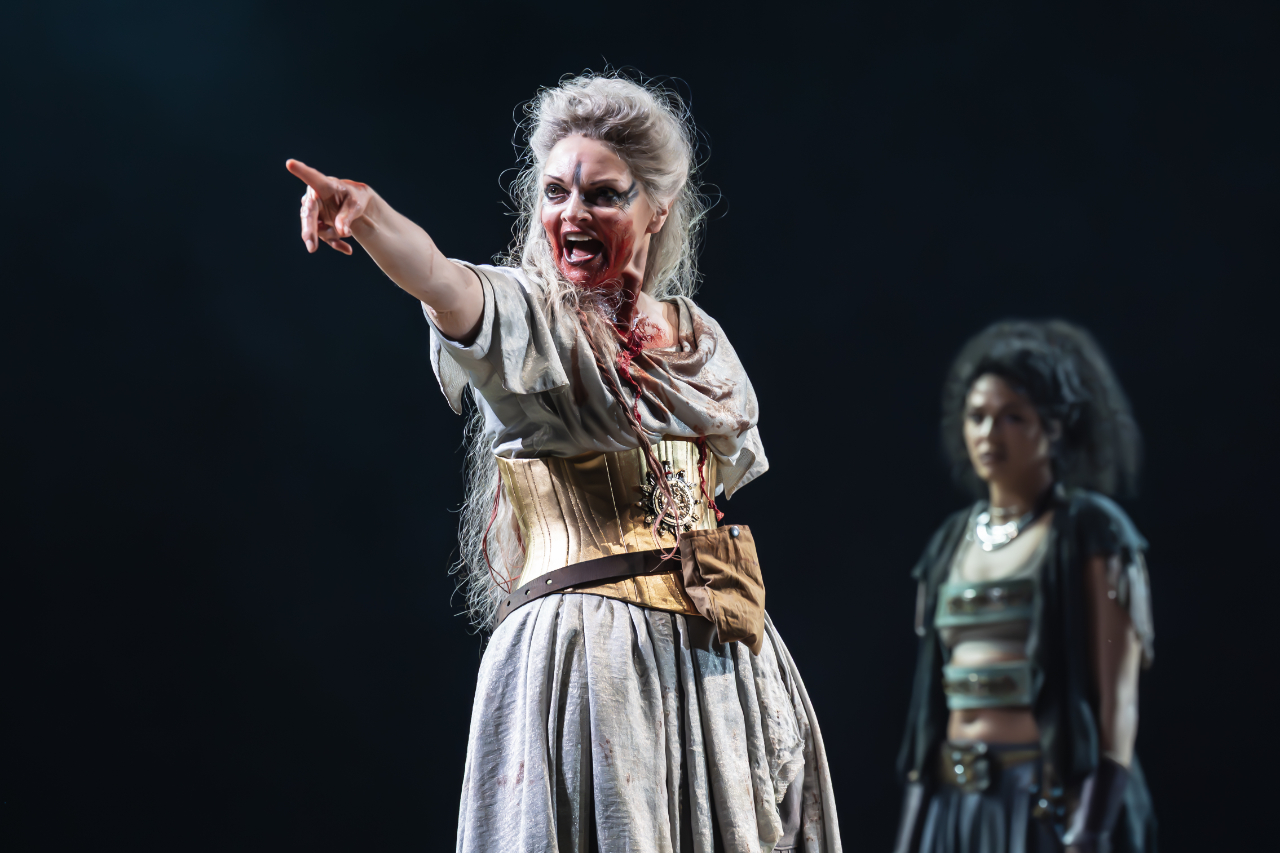
Directed by Indhu Rubasingham and written by Nima Taleghani, this adaptation of Euripides’s The Bacchae begins with pure spectacle: a gigantic white horse’s head drenched in blood. Visually, the production feels nothing short of a blessing from the god of theatre itself and from the very first moment, there is a strong sense of stepping into an entirely new world. This is aided by striking stage design and costumes, while the clever and impeccable use of lighting creates an intoxicating atmosphere. Just what you would expect from a play about the women of the Bacchae and their god.
The acting across the cast is consistently strong. Ukweli Roach’s Dionysus is a born showman, demanding attention and moving with the fluid agility and smoothness of an actual divine being. Each Bacchae has a distinct personality, even when not centre stage, which is perhaps the greatest strength of the production: a vivacious and pulsating chorus of women, brimming with life. They dance, sing, rap, chant and speak in a language attuned to younger audiences. Each one is compelling to watch, with Amanda Wilkin shining as Demi. Her genuine outrage at Pentheus’ (James McArdle) remark about their supposed disorganisation is one of the comedic highlights of the whole play. Clare Perkins is ferociously powerful as Vida, yet also compassionate when needed. This choice to give the chorus backstories – one even holding a doctorate – feels refreshing and well executed. Their eventual internal split into factions is cleverly staged, adding dynamism to their collectiveness. Here, there are flashes of real power and shifting power struggles.
Yet for all its energy and spectacle, the writing falters when it comes to emotional depth. By the time we reach the end of the climax, one is left wondering: Is that it?
Dionysus’ storyline is one of incredible, timely relevance: a tale of otherness, displacement and feeling rejected by one’s country and family. Yet the plot never generates a true sense of jeopardy, and the writing stops short of fully exploring the pain, grief, and loss woven into such a complex upbringing. The villain, Pentheus, remains more caricature than tragic figure, his arc unsatisfying mainly due to a lack of real danger posed by him. He never seems to be a genuine threat to the Bacchae or Dionysus.
The tragedy of Pentheus and Agave (Sharon Small) could have cut far deeper. The death of Pentheus’s daughter, for instance, feels like a missed opportunity that could have led to a devastating moment, shedding light on his fragility as both king and man. Similarly, his relationship with his mother is not fully explored, when greater focus might have given more pathos to their downfall (the lacerating scream of the Queen as she realises the consequences of her actions is brilliantly performed by Small).
Greek tragedy is renowned for its excavation of human (and godly) nature: vices, passions, desires and tenderness. The writing here gives us glimpses of such depth, but doesn’t paint a full picture. A production of The Bacchae can take a bold, risky path – as one might expect. It can either dissect and desecrate the source material through biting satire or reimagine it while preserving its profound humanity. This staging sits somewhere in between, unwilling to commit fully to either direction.
The result is thoroughly entertaining, irreverent, often witty and fun. But not quite the cathartic tragedy it could have been.
Benedetta Mancusi
Photos: Marc Brenner
Bacchae is at the National Theatre until 1st November 2025. For further information or to book, visit the theatre’s website here.
Watch the trailer for Bacchae at the National Theatre here:

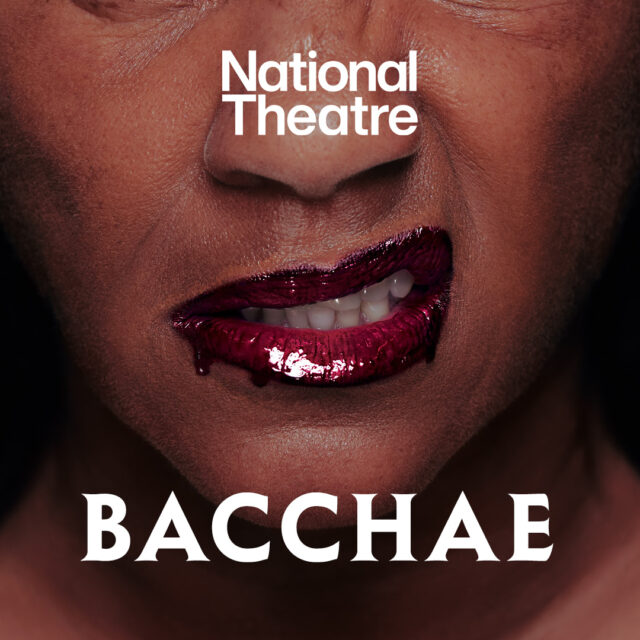
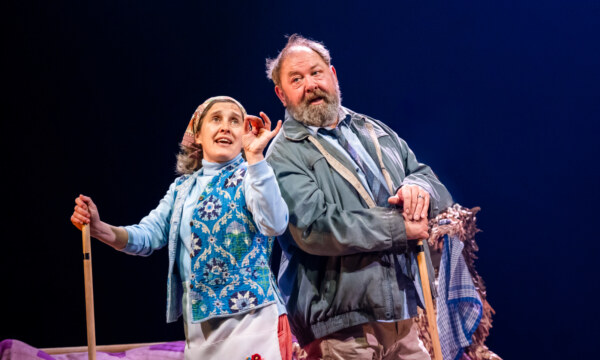
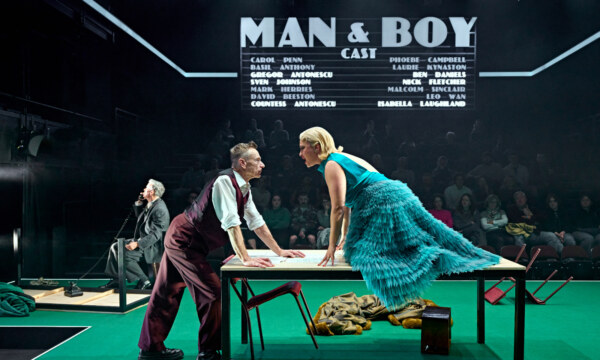
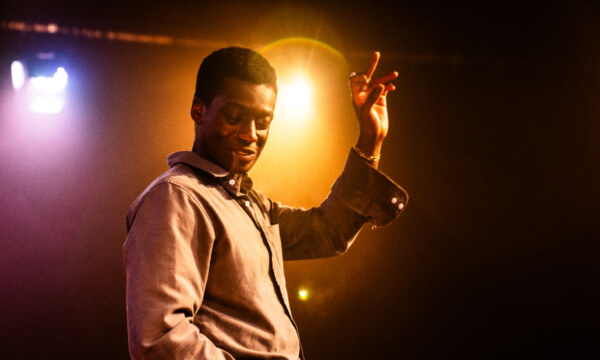
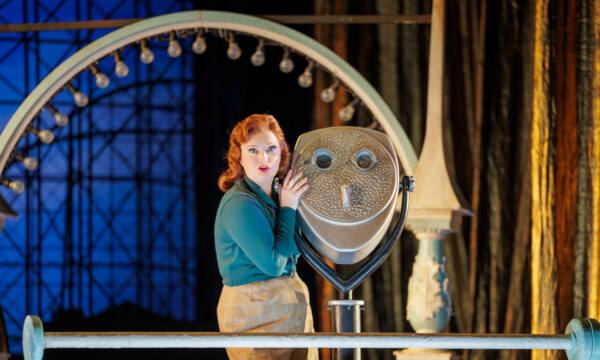
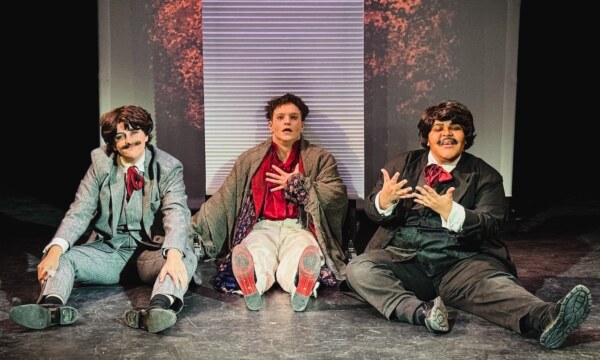
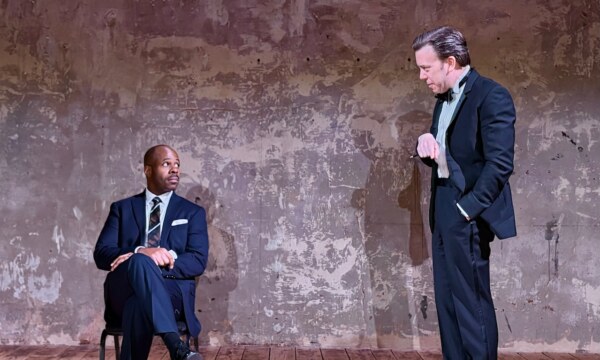
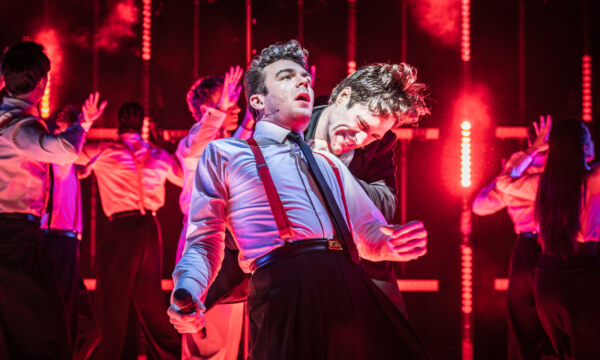
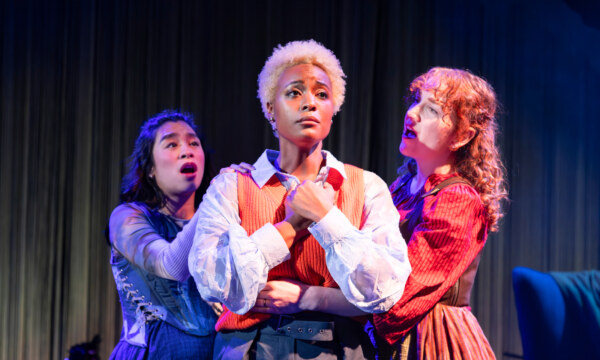
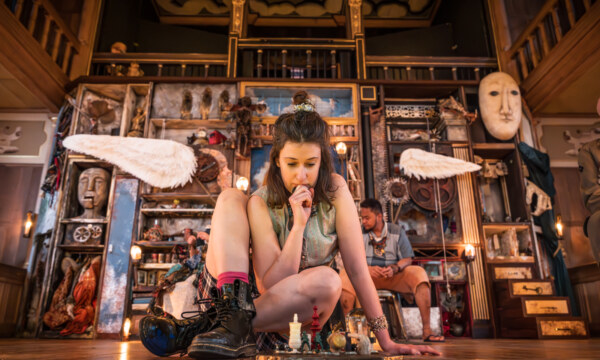

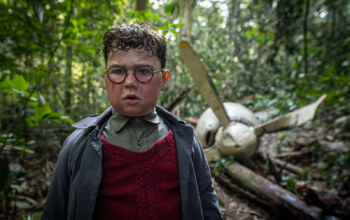
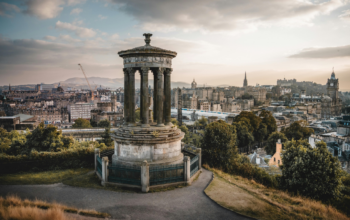
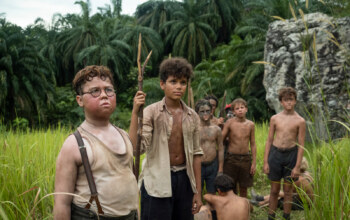
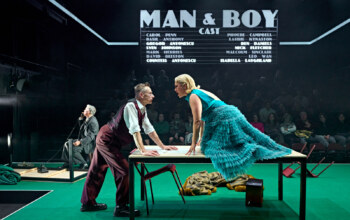



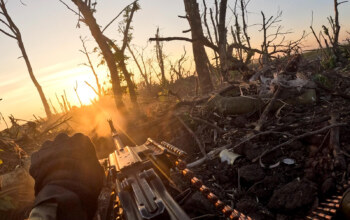
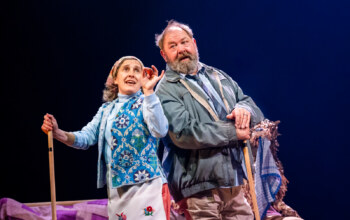

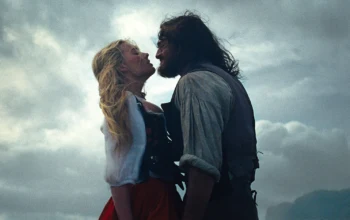



Facebook
Twitter
Instagram
YouTube
RSS